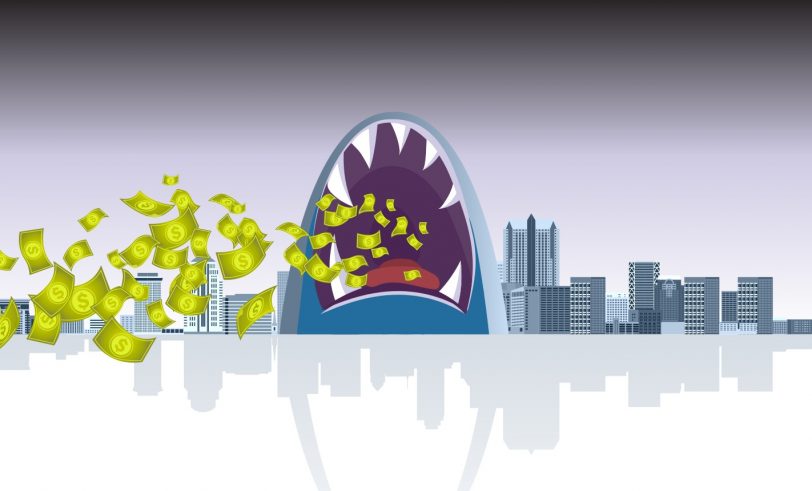Saint Louis, the Sales Tax Monster

As Cookie Monster is to cookies, Saint Louis is to sales taxes.
Back in April, voters in the City of Saint Louis approved a half-cent “economic development” sales tax hike. The increase, which brings the city’s base sales tax rate to 9.179%, is slated to fund a north–south MetroLink expansion, public safety, workforce development, and other programs. It also makes Saint Louis home to one of the highest sales taxes in the nation. In fact, Saint Louis now has a higher sales tax than New York City and San Francisco.
But policymakers aren’t finished yet.
There are two new sales tax proposals coming down the pipeline. One would raise sales taxes by one-eighth of one percent (0.125%) to help fund infrastructure improvements and conservation efforts at the Saint Louis Zoo, which is already funded with tax dollars. The other would raise the rate by one-half of one percent (0.5%) to bolster public safety spending. If both hikes were approved, the base sales tax rate in the city would be 9.804%, the 6th-highest in the nation. In areas with overlapping special taxing districts (of which there are dozens in the city), the rate would be nearly 12%.
There is neither a formula to determine the proper sales tax rate, nor a proven sales tax “ceiling,” but policymakers should carefully consider the implications of these proposals and whether there are alternatives to raising taxes.
For instance, if these sales taxes are approved, will voters have an appetite for other, more pressing proposals? That is, will these proposals exhaust Saint Louis’s sales-tax capacity? Also, will the proposed hikes disproportionately affect the poor? Is it fair for the city’s poor to subsidize the zoo for visitors from surrounding counties? Moreover, are sales taxes an appropriate source of funding for public safety? Police and firefighters are essentially security guards for taxpayers’ persons and property, so shouldn’t they be paid from property taxes?
Sales taxes can generate significant revenue and are easy to collect, but that doesn’t mean rates should be hiked every time a public need comes around. Perhaps if officials weren’t so eager to hand out taxpayer dollars for corporate welfare, Saint Louis wouldn’t need such high taxes for basic services. So, before asking taxpayers for more, perhaps city officials can reflect and ask themselves, “Can we do more with what we’ve already got?”


